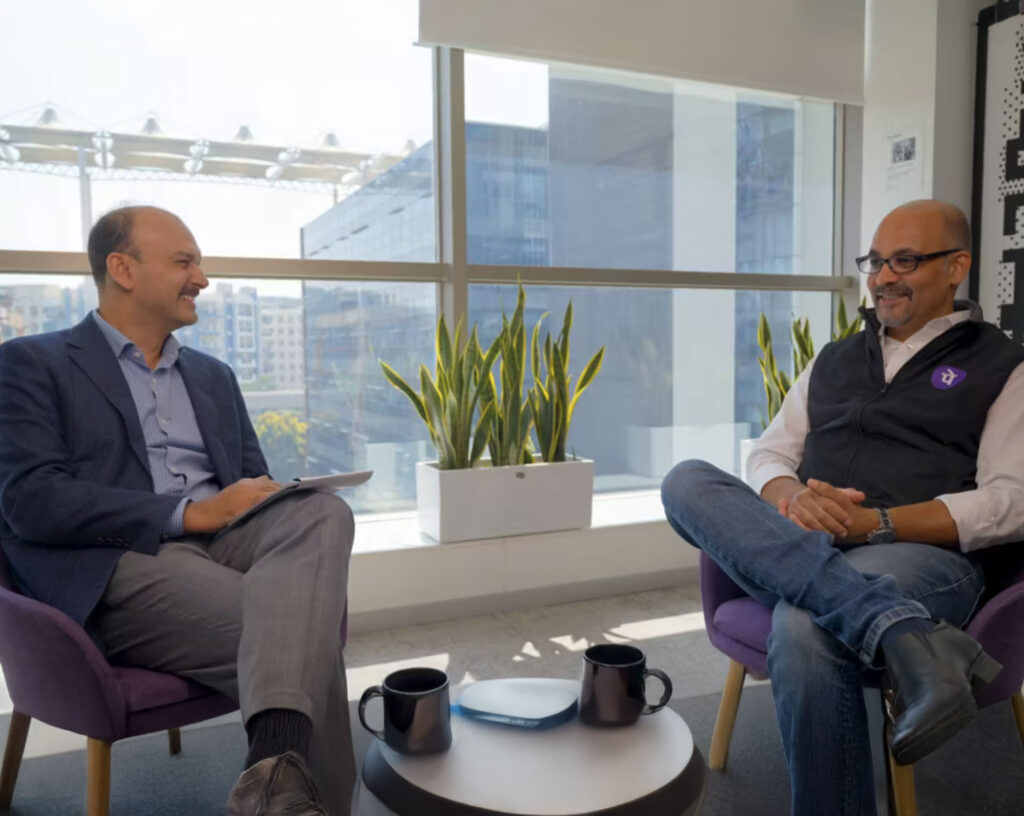How PhonePe Is Bringing a Mobile-First Future to India’s Payments System

General Atlantic’s Shantanu Rastogi, Managing Director and head of the firm’s India office, recently sat down with Sameer Nigam, CEO and cofounder of GA portfolio company PhonePe. This is an edited transcript of their conversation.
Rastogi: You’ve had an interesting background. Let’s start there.
Nigam: It has been a ride. I was born into a defense family, and when I was thirteen, we moved to Bombay from Delhi. I suddenly saw all these entrepreneurs and big businesses, and the bug hit me. I didn’t come from a family where risk-taking was common. I moved to the US to study engineering and did my master’s. I had a job offer from Microsoft but instead joined a startup called Shopzilla. Luckily, the startup did well, so my family is still talking to me.
I started to fall in love with the consumer internet, and the ways you can use the internet to change lives. Compared with the physical world in India we had growing up, the internet had no limitations, and that stayed with me very early on.
Rastogi: How is your business model structured?
Nigam: PhonePe, at its core, is a technology company. We have a very large consumer internet payments platform and, increasingly, financial services distribution as well. Our core bread and butter is the PhonePe app, where we facilitate transactions across categories like bill payments, lending, insurance, and investments. We are almost at 600 million registered users, but we also have about 40 million acquired offline merchants across the country.
“That is very important in a market like India where you have to educate small businesses. You have to teach them how to use our apps and our payment solutions, because they barely started banking ten years ago.
Rastogi: When I met you in 2018, PhonePe was doing a billion transactions a year. Now you are doing about 10 billion a month. What’s the tech architecture supporting this humongous scale-up?
Nigam: We have not changed the core architecture since launching nine years ago. In the last five years, we’ve added multiple data centers. But the core underlying architecture has not changed. There’s no easy way to explain to investors that an interoperable model is actually the best way to scale. The conventional thinking has always been: you carve out a niche. What can you do that nobody can try and do? But for us, when we take a national view of a billion users, it makes so much sense to work with an open architecture network.
Rastogi: How is AI going to impact financial services? How is PhonePe preparing?
Nigam: It’s unnerving, because the world’s again changing. You could imagine the PhonePe app where you’re giving it instructions, or you’re asking it queries on how to buy a mutual fund. All the hairy questions that today require physical agents for financial services, so much of this can happen with AI.
Rastogi: What are the biggest challenges?
Nigam: I think our generation has seen the best of global sharing: open APIs, open networks. At a macro level, we’re seeing an unfortunate reversal in openness due to many different factors. There’s also stress in labor in almost every market. With AI, I can increase the productivity of everyone. The flip side is you’re not hiring as much. And that’s true at a macro level. So, we’ll have to just think a lot harder about the kinds of sustainable jobs that we create.

Sector: Financial Services
Region: India
Year GA Invested: 2023
PhonePe is an Indian digital payments and financial technology platform.
